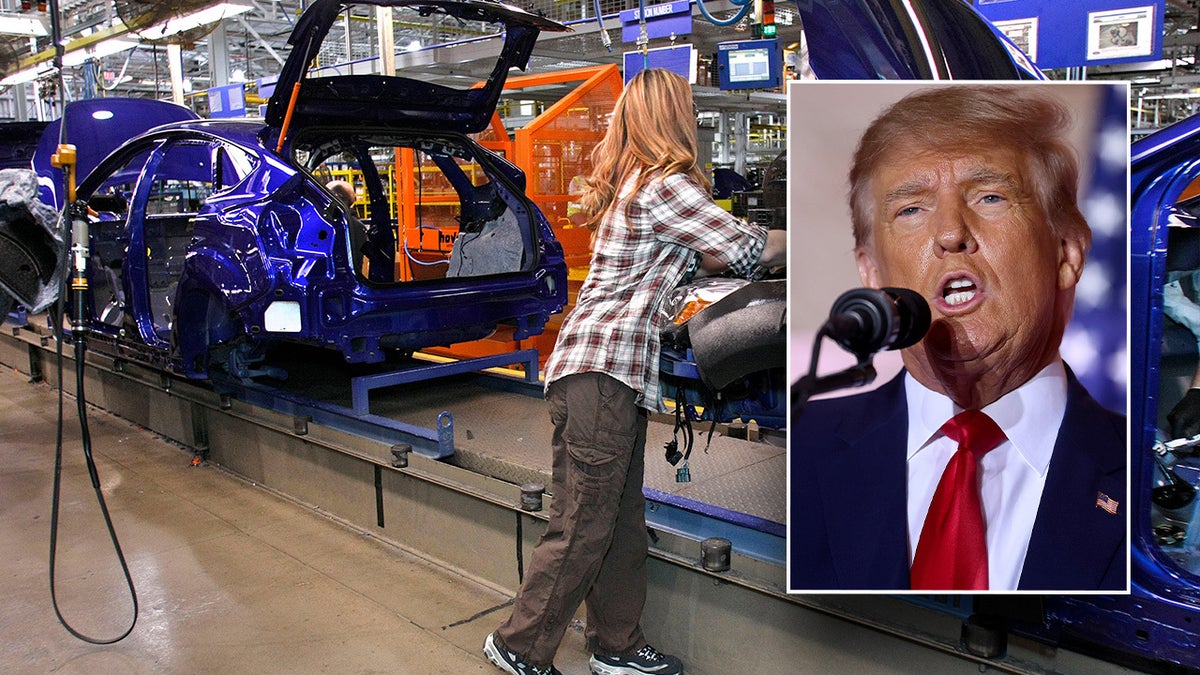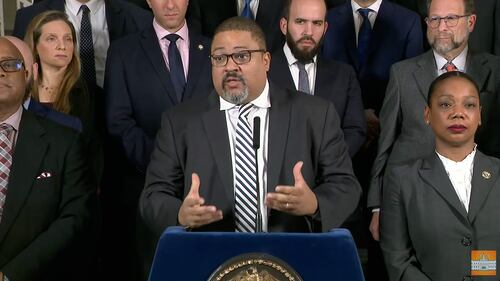Dealers Double Down: Fighting Back Against EV Sales Requirements

Table of Contents
Legal Challenges and Lobbying Efforts
Dealerships are increasingly engaging in legal challenges and intense lobbying efforts to combat EV sales requirements. They argue that these mandates are economically unfeasible, place an undue burden on their businesses, and infringe upon their established rights. This resistance is fueled by concerns about the immediate financial implications and the uncertainty surrounding the long-term viability of a fully electric automotive market.
-
Examples of legal challenges: Several dealer associations have filed lawsuits challenging the constitutionality and practicality of state EV quotas, arguing that they represent government overreach and fail to account for market realities and consumer preferences. Some lawsuits focus on the lack of sufficient charging infrastructure, while others claim the mandates unfairly disadvantage dealerships selling primarily gasoline-powered vehicles.
-
Powerful lobbying groups: Powerful automotive lobbying groups are actively working to influence legislators and regulators at both the state and federal levels. These groups are investing substantial financial resources into campaigns designed to weaken or overturn EV mandates, highlighting potential negative economic consequences for dealerships and their employees.
-
Political influence: The automotive industry wields significant political influence, and dealer associations are leveraging this power to advocate for their interests. They are engaging in strategic partnerships with lawmakers who share their concerns about the rapid transition to EVs. This includes sponsoring legislation that aims to slow the implementation of EV mandates or introduce alternative policies.
-
Analysis of resources: The financial resources dedicated to these legal battles and lobbying efforts are substantial, reflecting the significant stakes involved for the dealerships and the broader automotive industry.
Consumer Education and Perception Management
In addition to legal and political strategies, dealerships are actively shaping public perception of EVs through sophisticated marketing and public relations campaigns. They are focusing on highlighting perceived downsides of EVs to influence consumer choice and, indirectly, pressure policymakers to reconsider or modify the EV sales requirements.
-
Marketing campaigns: Dealerships are launching targeted marketing campaigns designed to address consumer concerns and potentially undermine the perceived benefits of electric vehicles. These campaigns often highlight range anxiety, limited charging infrastructure, and the perceived higher initial cost of EVs compared to gasoline-powered cars.
-
Social media and traditional media: Dealerships are leveraging both social media and traditional media channels to disseminate their message and shape public opinion. This includes advertising, press releases, and the strategic placement of articles and opinion pieces in major news outlets.
-
Effectiveness of campaigns: The effectiveness of these campaigns in influencing consumer opinion is a subject of ongoing debate. While some studies suggest that these campaigns are having a measurable impact, others argue that they are simply reflecting existing consumer hesitancy towards EVs.
-
Misinformation concerns: There are also concerns about the potential spread of misinformation through these campaigns. Dealerships are accused by some of exaggerating the challenges of EV ownership and downplaying the benefits, including environmental considerations.
Alternative Fuel Vehicle Focus & Infrastructure Investment (or Lack Thereof)
Many dealerships are adopting a strategy that focuses on promoting alternative fuel vehicles (AFVs) beyond fully electric models. This approach involves emphasizing hybrid vehicles and, in some cases, exploring the potential of hydrogen fuel cells as a less disruptive transition pathway. This strategy is often coupled with arguments that significant investment in charging infrastructure is necessary before stricter EV mandates are put in place.
-
Hybrid vehicle emphasis: Dealerships are actively promoting the benefits of hybrid vehicles as a compromise solution, positioning them as a less radical alternative to fully electric cars and a bridge to a future with more widespread EV adoption.
-
Infrastructure investment: The lack of significant investment in public charging infrastructure by many dealerships highlights the challenges of a rapid transition to EVs. While some dealers are beginning to invest in charging stations, this is often insufficient to address the scale of the problem, according to critics.
-
Long-term viability: The long-term viability of this strategy remains to be seen. The continued advancement of battery technology and potential government incentives for EVs may render the focus on hybrid vehicles obsolete in the long run.
-
Environmental impact comparison: This approach also raises questions about the long-term environmental impact. While hybrids offer an improvement over traditional gasoline vehicles, they still produce emissions, which undermines the environmental goals underlying many EV mandates.
The Role of Manufacturer Support (or Lack Thereof)
The level of support (or lack thereof) provided by auto manufacturers to their dealerships plays a crucial role in shaping the dealers' response to EV sales requirements. Manufacturers with strong commitments to EVs are likely to offer more assistance and resources to their dealers during the transition. In contrast, manufacturers that are hesitant to fully embrace EVs may provide less support, potentially exacerbating dealer resistance to mandates. This difference in manufacturer policies impacts dealer strategies and the success of their efforts to counter EV sales requirements.
Conclusion
Dealerships are employing a comprehensive strategy to challenge and mitigate the impact of EV sales requirements. This multifaceted approach encompasses legal battles, lobbying efforts, consumer education campaigns, and a continued focus on alternative fuel vehicles. The success of these various strategies remains uncertain, and the future of the automotive industry will depend significantly on the ongoing interplay between government regulations, manufacturer strategies, consumer demand, and the evolving actions of auto dealerships. The debate surrounding EV sales requirements is far from over, and it is crucial to continue monitoring these developments. Stay informed about the ongoing fight against EV sales requirements to better understand the complexities of the transition to electric mobility and the future of the automotive market.

Featured Posts
-
 Analyzing The Potential Of A Joint Swedish Finnish Military Force
Apr 22, 2025
Analyzing The Potential Of A Joint Swedish Finnish Military Force
Apr 22, 2025 -
 Open Ais Chat Gpt Under Ftc Scrutiny Implications For Ai Development
Apr 22, 2025
Open Ais Chat Gpt Under Ftc Scrutiny Implications For Ai Development
Apr 22, 2025 -
 Land Your Dream Private Credit Job 5 Essential Tips
Apr 22, 2025
Land Your Dream Private Credit Job 5 Essential Tips
Apr 22, 2025 -
 Exec Office365 Breach Millions Made Feds Say
Apr 22, 2025
Exec Office365 Breach Millions Made Feds Say
Apr 22, 2025 -
 Ftc Investigates Open Ais Chat Gpt What It Means For Ai
Apr 22, 2025
Ftc Investigates Open Ais Chat Gpt What It Means For Ai
Apr 22, 2025
